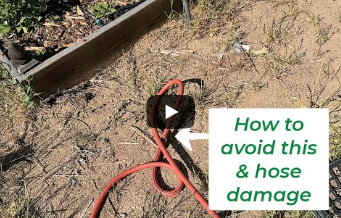How to Clean My Rusty Tools – A Gardener’s Guide to Tool Restoration
Rust removal should be a standard skill for all gardeners. Rusty tools not only lose their efficiency and require replacement, but can also pose a threat to your beloved plants. A smooth, clean tool can provide a precise cut, and eliminate hiding places for pathogens, ensuring your plants remain healthy. In addition, rust can eat away at your tools and degrade them overtime costing you money time and effortIf you’ve been wondering, “how can I clean my rusty tools?”, you’re in the right place. This comprehensive guide will provide simple, eco-friendly methods to restore your tools’ shine and performance.
Understanding Why Tools Rust
Before we dive into cleaning methods, it’s essential to understand why tools rust. When iron in the tools reacts with moisture and oxygen, it forms iron oxide, commonly known as rust. Over time, if not treated, rust can deteriorate your tools, making them ineffective and potentially harmful to your plants.
Eco-friendly Solutions for Tackling Rusty Tools
here’s a short list of environmentally friendly rust removal techniques you may or may not have been aware of, I can help in removing rust from all types of tools, including your gardening tools and implements.
- White Vinegar Bath
- How-to: Immerse your rusty tools in white vinegar overnight. This natural acid helps to break down rust without harming the metal underneath.
- Post-soak care: Remove tools from the vinegar and scrub off the rust with a scrubbing pad. Rinse thoroughly and dry immediately.
- Baking Soda Scrub
- How-to: Combine baking soda with a bit of water to create a thick paste. Smear this paste over the rusty spots and let it sit for a couple of hours. The baking soda acts as a mild abrasive, helping lift the rust.
- Post-treatment: Use a wire brush to scrub off the rust, rinse, and dry your tools.
- Lemon and Salt Duo
- How-to: Spread salt over the rusted area and then drizzle it with lemon juice. After a few hours, the acid from the lemon will have loosened the rust, making it easier to scrub away.
- Post-treatment: Using the leftover lemon rind, scrub off the rust. Wash with water and pat dry.
- The Potato Method
- How-to: Did you know potatoes contain oxalic acid, which can help combat rust? Cut a potato in half, dab some dish soap on it, and use it to scrub the rusted areas.
- Post-treatment: Rinse the tools with water and towel dry.
Tips for Preventing Future Rust
Cleaning is just half the battle; prevention is key. Here are some tips to keep your tools rust-free:
- Dry Before Storing: Always ensure your tools are dry before putting them away. This simple act can greatly reduce the risk of rusting.
- Oil Regularly: A light coat of vegetable oil or mineral oil forms a protective barrier against moisture and oxygen.
- Store in Dry Places: Ensure your storage area is dry. Using silica gel packets can help absorb any unwanted moisture.
In Conclusion
Gardening tools are an investment for every gardener, and maintaining them ensures a long life for your tools and better health for your plants. Cleaning rusty tools is straightforward and can be done using everyday household items, and should be done at the end of every gardening season. So the next time you find rust creeping onto your tools, you’ll know exactly how to tackle it!
Watch our video:
You can read more about garden tool maintenance land rust removal in the links below:
Recent Posts

The Power of Mounding: An Essential Gardening Technique for Healthy Plants

The Ultimate Guide to Philodendron Birkin – Care, Tips, and Benefits

Watering Plants – Indoor Edition

The Advantages of Built-Up Garden Beds: A Gardener’s Best Friend

The Secret Weapon for Lush Blooms: How to Create the Perfect Fertilizer Schedule










